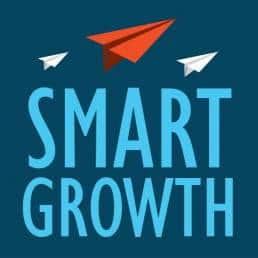



Sustainability is no longer just a buzzword, it has become a critical component of business strategy for enterprises of all sizes, and that means SMEs (small and medium enterprises), too.
SMEs may be more agile and ambitious, but they face challenges when integrating sustainability into the growth agenda.
What does sustainability mean for SMEs on a growth trajectory?
Essentially, it is a commitment to long-term success while considering environmental, social, and economic factors. It involves balancing profitability with responsibility, making decisions that drive financial growth, and contributing positively to the environment, society, and the well-being of stakeholders.
Sustainability is important for a variety of reasons. It will enhance competitiveness by appealing to conscious consumers who desire eco-friendly and socially responsible products and services. It can be a good differentiator for your brand. Just as banning plastic bags created setbacks for many SMEs, regulators will put stronger scrutiny on sustainability, given that the UN also has mandated this. Addressing environmental and social risks early can help in avoiding future liabilities, regulatory penalties, and reputational damage.
Sustainability measures, such as energy efficiency, carbon footprints, and waste reduction, can lead to cost savings over time, improving your resilience. In addition, such enterprises will find it easier to attract investments and secure funding from impact investors and financial institutions.
As India embraces sustainable development, SMEs play a crucial role in the nation's growth agenda. India has introduced environmental and social compliance requirements. SMEs will have to align with these regulations to avoid legal issues and fines and to ensure business continuity.
Possibilities for SMEs to embrace sustainability
· Try adapting solar energy, for instance. Install solar panels to harness renewable energy, reducing electricity costs and carbon emissions. Companies like Hero Future Energies offer solar solutions for SMEs.
· Another possibility is to use eco-friendly packaging. Packaging such as biodegradable materials (as used by many restaurants) or reusable packaging (such as cloth bags) can appeal to eco-conscious consumers. Startups like The Better India Packaging offer sustainable packaging solutions.
· Community engagement is another area. One can engage with local communities by investing in skill development, healthcare, and education. Tata Steel's initiatives in Jamshedpur, including healthcare services and vocational training, exemplify community engagement.
· Then there is something called ethical sourcing. Ensuring that raw materials are sourced ethically and sustainably is vital. Many Indian SMEs in the textile industry have adopted organic cotton and fair trade practices by sourcing from local artisans.
· You can invest in energy-efficient equipment and practices to reduce your carbon footprint and lower operational costs. Restaurants can invest in energy-efficient cooking systems and lighting, for instance.
· Implementing waste reduction strategies like recycling, reusing materials, or reducing packaging, can cut costs and contribute to sustainability. A small manufacturer can adopt lean production techniques to minimise waste, for example.
· Prioritise the well-being of employees through fair wages, safe working conditions, and opportunities for skill development. This can improve employee morale and productivity – a must for sustainable growth.
Challenges in sustainability
Indeed, there is a multitude of challenges that will hamper the easy adoption of sustainability by SMEs. Resource crunch is the foremost. SMEs have limited resources, both financial and human, which can make it hard to invest in many sustainable initiatives.
Second, many SMEs lack awareness of sustainable practices and their potential benefits. Education and training are crucial and that will take time. Third, understanding and complying with environmental and social regulations can be daunting for small enterprises, particularly when resources are scarce.
Fourth, there are supply-chain complexities. One may face challenges in implementing sustainable practices throughout their supply chains, especially when dealing with larger, less sustainable partners. Finally, for most SMEs, access to funding is still an issue these days, despite promises by the government. Securing financing for sustainable projects is still challenging, as traditional lenders do not fully understand the potential benefits.
The following two real-life cases from India will enhance the understanding of sustainable growth.
1. Dharnai Village Microgrid: Greenpeace, in collaboration with BASF and CEED, set up a solar microgrid in Dharnai, Bihar, providing clean energy to an entire village. This project showcases the potential for sustainable energy solutions in rural India.
2. CleanMax Solar: This Indian startup offers solar solutions to SMEs, helping them reduce carbon emissions and energy costs. Its clients include manufacturing units, commercial complexes, and educational institutions.

On a global level, Patagonia, a renowned outdoor apparel company, operates as a Certified B corporation committed to environmental and social responsibility. Despite being a larger entity, its ethos of sustainability and transparency are valuable examples for SMEs. Patagonia donates a percentage of its profits to environmental causes and promotes the repairability and reusability of its products.
As another global example, Method, a cleaning products company, exemplifies sustainable practices for SMEs. It uses eco-friendly packaging, and biodegradable ingredients, and promotes refillable products. Method's focus on sustainability has attracted environmentally conscious consumers, contributing to its growth.
Sustainability is not just about being environmentally responsible; it's about ensuring long-term viability and growth while contributing positively to the nation's sustainable development goals. By aligning growth with responsibility, Indian SMEs can become catalysts for a sustainable and prosperous future.
Discover the latest Business News, Sensex, and Nifty updates. Obtain Personal Finance insights, tax queries, and expert opinions on Moneycontrol or download the Moneycontrol App to stay updated!
Find the best of Al News in one place, specially curated for you every weekend.
Stay on top of the latest tech trends and biggest startup news.